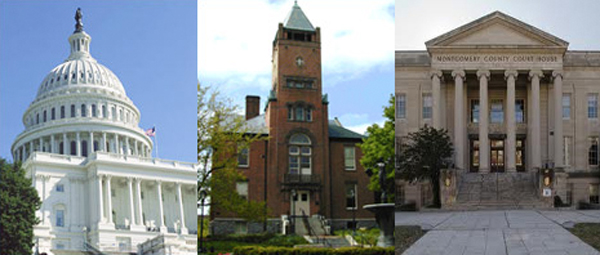Maryland Healthcare Disciplinary Board Information
Frequently Asked Questions
I received a notice from my licensing Board requesting information. What should I do?
If you have professional malpractice insurance, you should report the Board request to your insurance agent / provider since your policy may provide you with defense costs. If you do not have insurance (or it does not cover Board investigations), it is critical that you secure professional legal representation to protect your rights and livelihood. Retaining defense counsel at the beginning of an investigation is critical to secure the best possible outcome and the attorneys at Walker, Murphy & Nelson, LLP can help you with the process.
Do I have the right to select my own legal counsel?
Most insurance policies will allow you to select your own counsel and, under certain circumstances, you have the legal right to insist on counsel of your own choice. The attorneys at Walker, Murphy & Nelson, LLP are already on the “approved list” of many carriers and, if we are not on your carrier’s approved list, we can typically obtain approval on a case-by-case basis due to our extensive years of experience.
Why do I need legal advice if the patient complaint filed with my licensing Board was frivolous?
Responding to a frivolous patient complaint without legal counsel is a common mistake. Licensing Boards will investigate all patient complaints, no matter how frivolous they may seem. More important, often the Board will not look at only the patient’s complaint, but the overall care and treatment provided, as well. Further still, the licensing Boards can on occasion use a patient complaint – no matter how frivolous – as grounds for a broader investigation into patient care. Having legal counsel guide you through the process and your rights is important, no matter how baseless the case may appear.
My licensing Board has started an investigation. What can I expect?
Each licensing Board is different, but generally speaking an investigation will consist of the Board obtaining a complete set of records via subpoena from related healthcare providers, obtaining a written statement from you as to “your side” of the story, and often times interviewing you and/or other witnesses. Our counsel will help guide you through the process, protecting your rights and guarding against overzealous prosecution by the Boards.
I have been charged with violating professional standards of care. What rights do I have?
Each disciplinary Board has its own rules and procedures but, in general, you will have an opportunity to try and resolve the charges against you informally via a case resolution conference or some other equivalent. If that is not successful, then you will have the right to a full adversary hearing before either the Board or an Administrative Law Judge. The attorneys at Walker, Murphy & Nelson, LLP will help guide you through this process and present favorable evidence on your behalf.
I have been charged with misrepresentation, Medicare or billing fraud. What will happen to my license?
While every case is different, all licensing Boards treat misrepresentation and/or fraud claims seriously. Even seemingly minor matters such as irregularities in your initial license application package can open the door to grave licensing consequences. In addition, allegations such as fraud pose unique challenges with both civil and criminal implications. If proven, the Board can impose a range of sanctions that may include restitution and/or revocation of your license, so legal representation to defend against such claims is vital. Your counsel can help explain the full range of options and possibilities available to you, as well as discuss strategies to defend against claims of misrepresentation or fraud.
I have been offered a diversionary or rehabilitation program through my licensing Board for substance abuse. Should I agree?
Often times, a healthcare professional with a perceived drug or alcohol dependency may be offered a diversionary or rehabilitation program. These programs, while beneficial to some, carry their own risks and, often times, expulsion or unsuccessful participation in the program can result in additional challenges to maintaining your license. Because each case is unique, it is important that you retain legal counsel to help you assess your rights and understand your options before entering into such a program.
Call (301) 519-9150 for your healthcare arbitration needs.
Disclaimer: This article is for general informational purposes only. Nothing contained herein constitutes legal advice, nor does it create an attorney-client relationship. All persons reviewing this should consult counsel for advice regarding any specific legal questions and any unauthorized use of this information is expressly prohibited.

